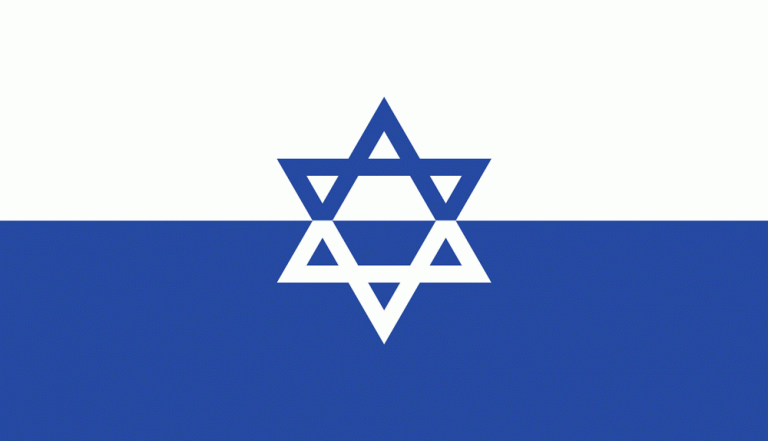
Morgan Bubman
It was hard to miss the giant apartheid wall constructed by the Students for Justice in Palestine that stood outside the Davidson Library. When I first encountered the wall last Monday morning, I instantly felt the tears welling up in my eyes. As a Jewish student, I felt completely alienated and unwelcome on my own college campus. I felt uncomfortable in my own skin and completely alone. I had to begrudgingly walk past the wall approximately six more times that day.
There is no obvious right or wrong side in the Israeli-Palestinian conflict. Both sides have committed atrocities against the other, and no matter how much I personally support the Zionist movement after hours researching the history of the conflict, I will not deny that fact. The most important factor in commenting on this conflict is proper knowledge, not merely taking sides. This wall promotes the spreading of biased and inaccurate information.
The wall severely misrepresents Israel as an inhumane, grotesque, and torturous state that has merely occupied Palestinian territory. The reality of the situation is that the British government split what was previously known as British-mandate Palestine into two territories in 1948, one side for the Jewish people and the other side for the Palestinian people. This decision was officially made after the Holocaust, giving millions of displaced Jewish people a state of refuge, and was met by heavy military resistance from the surrounding Arab countries.
This decision made by the British government, as well as the United Nations, reflected support for the Zionist movement. Zionism, while initially defined as a movement in favor of the Jewish people returning to their ancestral homeland, is now more commonly referred to as the support of the existence of Israel as a nation. This definition is important to note, as the apartheid wall falsely claims that the Zionist movement reflects “systems of belief and ideology that have allowed for the exclusion & suffering on the basis of [Palestinian] identity.”
Ironically enough, while claiming that the Zionist movement allows for exclusion based on identity and suffering, SJP’s wall initially did not recognize the state of Israel as more than “Occupied Territory,” and ignores how the Palestinian government refused to acknowledge that Israel existed until 40 years after its establishment. The wall also ignores the inability for Jewish people to live peacefully with any of the other 23 Arab countries surrounding Israel, as these countries are notorious for being anti-Semitic.
SJP has since covered up the blatant misrepresentation of Israel as “Occupied Territory,” as well as the grossly false quotes from Israeli leaders that they had previously showcased, although I personally witnessed SJP members try to validate and excuse their presentation of incorrect information. The wall gives skewed information that leaves out the role the Palestinians play in the conflict, and makes Israel out to be viciously terrorizing them. Israel has a right to defend themselves militarily, and the wall leaves out information on previous military attacks made by the Palestinians themselves.
When I became enraged at the site of the wall, an SJP member asked me why I found it to be so alienating and offensive as a Jewish person. I was baffled at the ignorance of their question, as this wall initially denied even the existence of Israel as a nation. With quotes such as, “There was peace in the Middle East until the 1948 occupation” written on the wall, my anger felt obvious and justified, considering that occupation occurred after the genocide of millions of Jewish people. Also important to note, there was not peace in the Middle East before this occupation, as there were outbursts of violence in 1921, 1929, and 1936.
I’m not religious, but Jewish culture is a huge part of my identity, as is my belief in the Zionist movement. I grew up going to Hebrew School, I was Bat Mitzvahed when I was 13 years old, and I used to have weekly family Shabbat dinners. While I have always been proud to be Jewish, I have known many Jewish people who had wished they were Christian growing up. The older I get, the more I take note of the anti-Semitism around me, with friends making comments about “needing to be more of a Jew about [their] money” and memories of high school classmates throwing coins on the ground and asking if I was going to pick them up. The apartheid wall is nothing short of a smear campaign against Israel, and brings back memories of the ignorance and intolerance I have witnessed and experienced in my life.
Being forced to see the wall every day this week is more triggering for me than I ever imagined. I cried the first three times I saw it, and I’m becoming emotional now at the mere thought of having to see it tomorrow. The wall allows for the spreading of inaccurate information, which may affect the views of students who are not informed on the history of the conflict. While I may disagree with the anti-Zionist movement, I would be far less appalled were the information true.
I personally believe that Israel has a right to exist. I came to this conclusion not only after growing up in a Jewish and Zionist household, but also after doing hours of personal research on this conflict. Take whatever side you will, but please properly educate yourselves before doing so.










